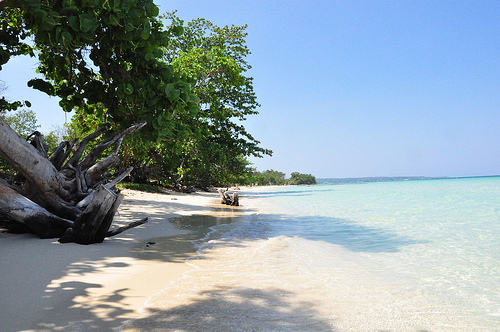The island nation of Jamaica is the fifth largest in the Caribbean, covering an expanse of 10,990 square kilometers. The capital city of Kingston houses a population of about 937,700, and is especially popular for its vibrant nightlife and array of restaurants. A number of expats live and work here in different industries ranging from tourism to manufacturing.According to the World Bank’s Ease of Doing Business rankings for 2015, it is quite easy to start a business and acquire credit in Jamaica, factors which no doubt have led to many foreigners arriving at its shores over the years.
Property hotspots in Jamaica
Buyers usually head to the island’s northern coast, where properties are in great demand. The most popular properties are the more well-established ones such as Negril, St. James and St. Ann, where several golf courses, resorts and beaches are located. Other good areas to invest in real estate include Westmoreland on the southern side of the island, Runaway Bay and Discovery Bay, which is close to Puerto Seco Beach. Countryside areas like Falmouth and the surrounding region are also popular among those who prefer a quieter lifestyle. These areas are only about 15 minutes away from the coast by car. Real estate investment is also picking up in Port Antonio in Portland, known for attractions such as Frenchman’s Cove Beach and the famous Blue Lagoon.
Buying property in Jamaica
Foreigners are eligible to buy property in Jamaica without any restrictions. The process begins when the buyer makes an offer. Once the seller accepts it, a land survey is carried out. A title search is also done to check if any other claims exist or if there are conflicting interests involved in the property. Upon clearing this step, the buyer can lodge a caveat that restricts the registration of any other interest against the particular property, until after the transfer process has been completed.
Land titles in Jamaica fall under two categories. Unregistered lands are given a common law title, which can also be upgraded to a registered title. Registered titles are legal and official. Buyers are required to obtain the original title document of the property from the Office of Land and Titles. This can be done with the assistance of a lawyer.
A sale agreement is then prepared, usually by the seller’s lawyer, and is signed by buyer and seller in the presence of a lawyer. The signed agreement makes the transaction official and binding. The buyer must also pay a deposit, equivalent to 10 – 20 percent of the selling price, and pay a share of the stamp duty. The payment is usually made in installments. If a buyer wishes to use foreign currency remittance for purchasing a property, prior approval from the Bank of Jamaica is necessary. The Exchange Control Department of the Bank of Jamaica must give consent before any purchase agreements can be conducted.
Upon signing the sale agreement, an application must be made at the Office of the Registrar of Titles. Government duties must also be paid at this stage. It is important to get documents on conveyance of land stamped within a month after signing, as otherwise penalties may be imposed.
The sale is deemed completed once the transfer of the deed takes place. If the buyer has taken out a mortgage, the process can continue for up to three months from the signing date. The entire process of registering a property can take up to 41 days.
Costs
In Jamaica, lawyers are involved in every aspect of a property sale and they generally charge legal fees amounting to 1.50 to 3 percent of the purchase price. Add to this 16.5 percent General Consumption Tax or GCT. In cases where stamp duty has to be paid, the buyer and seller share the cost. Stamp duty is approximately 4 percent of the purchase price. The registration fee, which can be paid at the National Land Agency, is around 0.50 percent of the market value of the property. The seller undertakes the transfer tax and this amounts to 5 percent of the property value. If a real estate agent is involved in the process, their fees can amount to 3 to 5 percent of the purchase price, along with 16.5 GCT.
Can we improve this article? Something wrong? Let us know!

